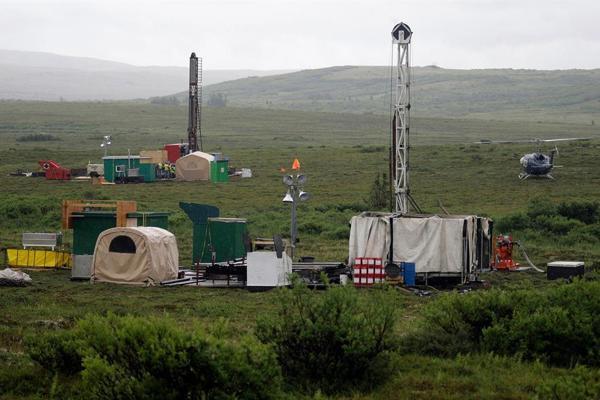EPA proposes restrictions in fight over Alaska mine
JUNEAU


The U.S. Environmental Protection Agency has proposed restrictions that would block plans for a copper and gold mine in Alaska’s Bristol Bay region, the latest in a long-running dispute over efforts by developers to advance the mine in a region known for its salmon runs.
Critics of the Pebble Mine project called the move an important step in a years-long fight to stop the mine. But John Shively, the CEO of the Pebble Limited Partnership, which is pursuing the mine, called EPA’s proposal a “political maneuver” and a preemptive effort to veto the project.
The EPA in a statement said the proposal would bar discharges of dredged or fill material into the waters of the U.S. within the mine site footprint proposed by the Pebble partnership.
The federal agency said it took into account information that has become available since it previously proposed restricting development in 2014, including new scientific analyses and a mine plan from the Pebble partnership that was submitted to the U.S. Army Corps of Engineers as part of a permit application.
The Pebble partnership, owned by Canada-based Northern Dynasty Minerals Ltd., is appealing a 2020 corps decision that denied approval of a key permit for the project in southwest Alaska. Leaders of the Pebble partnership had seen as favorable to the project an environmental review from the corps that was released several months before the rejection decision.
The corps’ Pacific Ocean Division is handling the appeal. A division spokesperson, Luciano Vera, earlier this month said the corps did not have a timeline for releasing a decision but was “committed to working as efficiently as possible to reach an objective and fair decision on the merits of this appeal.”
Casey Sixkiller, the EPA’s administrator for the region, said Bristol Bay supports one of the world’s most important salmon fisheries. The EPA has said the Bristol Bay region supports the largest sockeye salmon fishery in the world and that it also contains significant mineral resources.
“Clearly, Bristol Bay and the thousands of people who rely on it deserve the highest level of protection,” Sixkiller said in a statement.
